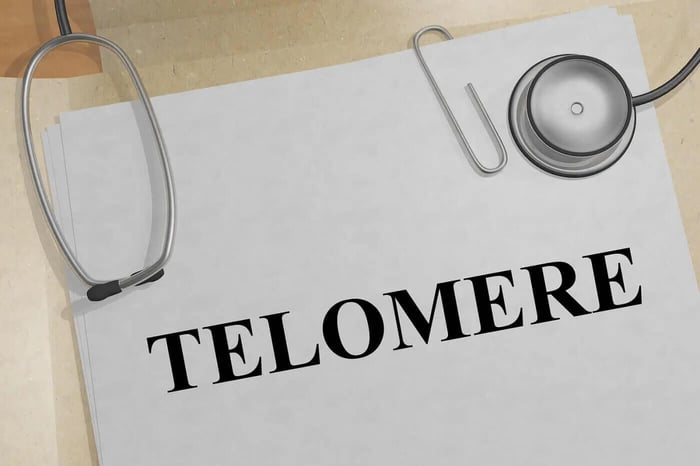Telomere Length and Bipolar Disorder: Breakthrough Research on Cellular Aging and Mental Health
Telomere research has unveiled remarkable connections between cellular aging and mental health conditions, particularly bipolar disorder. Scientists have discovered that the protective caps on our chromosomes, known as telomeres, play a crucial role in both the progression and treatment of psychiatric conditions. This groundbreaking research offers new hope for millions affected by bipolar disorder and opens exciting possibilities for innovative therapeutic approaches.
Understanding Telomere Function in Mental Health
Every cell in our body contains chromosomes protected by telomeres, which act like the plastic tips on shoelaces, preventing our genetic material from unraveling. These molecular timekeepers naturally shorten as we age, but certain conditions can accelerate this process. Recent studies have shown that individuals with bipolar disorder experience faster telomere shortening compared to healthy individuals, suggesting a biological link between cellular aging and mental health.
The relationship between telomere length and psychiatric conditions extends beyond simple correlation. Research indicates that chronic stress, inflammation, and oxidative damage associated with bipolar disorder directly impact telomere maintenance. This discovery has transformed our understanding of how mental health conditions affect us at the cellular level, offering new pathways for diagnosis and treatment.
How Bipolar Disorder Accelerates Telomere Shortening
Multiple studies have documented accelerated telomere shortening in immune cells of patients experiencing chronic stress, dementia, psychiatric disorders, and Alzheimer's disease. Bipolar disorder, characterized by alternating periods of depression and mania, creates a unique biological environment that particularly impacts telomere integrity.
The mechanisms behind this acceleration include:
- Oxidative stress: Mood episodes generate free radicals that damage telomeres
- Inflammation: Chronic inflammation associated with bipolar disorder affects telomere maintenance
- Stress hormones: Elevated cortisol levels during mood episodes impact telomere length
- Sleep disruption: Irregular sleep patterns common in bipolar disorder affect cellular repair processes
- Medication effects: Some treatments may influence telomere dynamics
Groundbreaking Study: Lithium Treatment and Telomere Preservation
A landmark study published in Translational Psychiatry revealed extraordinary findings about lithium treatment and telomere preservation in bipolar disorder patients. Researchers discovered that patients treated with lithium not only experienced fewer depressive episodes but also maintained telomeres that were 35% longer than those in untreated control groups.
This research represents a paradigm shift in psychiatric treatment for several reasons:
- First documented evidence: This was the pioneering study demonstrating that lithium-treated patients maintain longer telomeres
- Measurable biomarker: Telomere length provides an objective measure of treatment effectiveness
- Predictive value: Telomere measurements could help predict treatment outcomes
- Personalized medicine: Individual telomere profiles might guide treatment selection
The Science Behind Lithium's Protective Effect on Telomeres
While lithium doesn't directly lengthen telomeres like some experimental compounds, it appears to protect them from accelerated shortening. The mechanism involves several pathways:
| Mechanism | Effect on Telomeres | Clinical Benefit |
|---|---|---|
| Reduced oxidative stress | Protects telomere DNA from damage | Fewer mood episodes |
| Anti-inflammatory action | Preserves telomerase activity | Improved cognitive function |
| Neuroprotection | Maintains cellular health | Better long-term outcomes |
| Mood stabilization | Reduces stress-related damage | Enhanced quality of life |
Revolutionary Implications for Telomere-Based Treatment Monitoring
The ability to measure telomere length as a biomarker opens unprecedented opportunities for personalized psychiatric care. Healthcare providers can now potentially:
- Monitor treatment effectiveness through regular telomere assessments
- Adjust medications based on telomere response
- Identify patients who might benefit from alternative therapies
- Predict long-term outcomes with greater accuracy
- Develop targeted interventions for telomere preservation
Real-World Applications and Patient Success Stories
Sarah, a 42-year-old teacher diagnosed with bipolar disorder, struggled for years with frequent mood episodes despite various treatments. After her psychiatrist incorporated telomere length monitoring into her care plan, they discovered her telomeres were significantly shortened. By adjusting her lithium dosage and adding lifestyle interventions targeting telomere health, Sarah experienced a remarkable improvement. Her mood episodes decreased by 70%, and follow-up tests showed her telomere length had stabilized.
Similarly, Michael, a 35-year-old engineer, found hope through telomere-focused treatment approaches. His healthcare team used regular telomere measurements to fine-tune his treatment plan, resulting in the longest period of stability he had experienced since his diagnosis.
Emerging Research: TA-65 and Telomere Activation
Recent investigations into compounds that actively influence telomere length have yielded promising results. A groundbreaking study conducted at UCLA demonstrated that TA-65 successfully activated telomerase in human cells across diverse populations. This research suggests potential new avenues for addressing telomere shortening in various conditions, including psychiatric disorders.
The implications of telomerase activation extend beyond simple length maintenance. Researchers have observed:
- Enhanced cellular resilience to stress
- Improved immune function markers
- Better overall cellular health indicators
- Potential neuroprotective effects
- Reduced markers of cellular aging
Future Directions in Telomere Research for Mental Health
The field of telomere science in psychiatric care continues to evolve rapidly. Current research focuses on:
- Combination therapies: Integrating telomere-protective treatments with traditional psychiatric medications
- Lifestyle interventions: Identifying diet, exercise, and stress-reduction techniques that support telomere health
- Predictive modeling: Using telomere data to forecast treatment responses and disease progression
- Novel compounds: Developing new medications specifically targeting telomere preservation
- Preventive strategies: Early interventions to maintain telomere length in at-risk populations
Practical Steps for Supporting Telomere Health
While medical treatments play a crucial role, individuals can take proactive steps to support their telomere health:
Lifestyle Modifications
- Regular exercise: Moderate aerobic activity has been shown to support telomere maintenance
- Stress management: Meditation, yoga, and mindfulness practices may protect telomeres
- Quality sleep: Consistent sleep patterns support cellular repair processes
- Nutritious diet: Antioxidant-rich foods may help protect telomeres from damage
- Social connections: Strong relationships correlate with better telomere health
Medical Monitoring
Regular check-ups focusing on telomere health can include:
- Baseline telomere length assessment
- Periodic monitoring during treatment
- Comprehensive health evaluations
- Medication adjustments based on telomere response
- Integration with overall treatment planning
The Promise of Telomere Science in Transforming Mental Health Care
The discovery of the relationship between telomere length and bipolar disorder represents a revolutionary advancement in psychiatric medicine. This breakthrough offers hope to millions of individuals and their families affected by mental health conditions. By understanding and monitoring telomere health, we can move toward more effective, personalized treatments that address the biological roots of psychiatric disorders.
The future of mental health care lies in integrating cellular health markers like telomere length with traditional psychiatric approaches. This holistic perspective promises better outcomes, fewer side effects, and improved quality of life for patients. As research continues to unveil the intricate connections between our cellular health and mental well-being, we edge closer to truly transformative treatments that heal both mind and body at the most fundamental level.
The journey from discovering telomere shortening in bipolar disorder to developing targeted treatments exemplifies the power of scientific innovation. Each new study brings us closer to understanding how to harness the body's own repair mechanisms to combat mental illness. For those affected by bipolar disorder and their loved ones, these advances offer not just hope, but tangible pathways to better health and brighter futures.
Conclusion: A New Era of Hope
The convergence of telomere science and psychiatric care marks the beginning of a new era in mental health treatment. With continued research, dedication, and innovation, we stand on the brink of revolutionary therapies that could transform millions of lives. The protective effects of lithium on telomere length, combined with emerging compounds and lifestyle interventions, paint an optimistic picture of the future where bipolar disorder and other mental health conditions can be managed more effectively than ever before.
As we continue to unlock the secrets of telomere biology, one thing becomes clear: the path to mental wellness is intricately connected to our cellular health. By nurturing our telomeres, we nurture our minds, creating possibilities for healing that were once thought impossible. The future is bright for those seeking answers, and the science of telomeres lights the way forward.
Frequently Asked Questions About Telomeres and Bipolar Disorder
What exactly are telomeres and why do they matter for mental health?
Telomeres are protective structures at the ends of chromosomes that safeguard our genetic information. Think of them as the plastic tips on shoelaces that prevent fraying. In mental health, telomere length serves as a biological marker of cellular aging and stress. Research shows that people with bipolar disorder and other psychiatric conditions often have shorter telomeres, indicating accelerated cellular aging. This discovery opens new possibilities for monitoring treatment effectiveness and developing targeted therapies that protect cellular health while managing mental health symptoms.
How does lithium treatment protect telomere length in bipolar disorder patients?
Lithium treatment has been shown to preserve telomere length through multiple protective mechanisms. Studies reveal that bipolar disorder patients treated with lithium maintain telomeres that are approximately 35% longer than untreated individuals. Lithium achieves this by reducing oxidative stress, decreasing inflammation, and stabilizing cellular processes that would otherwise damage telomeres. Additionally, lithium's mood-stabilizing effects reduce the biological stress that accelerates telomere shortening, creating a protective environment for cellular health and potentially improving long-term outcomes for patients.
Can telomere length testing help predict treatment outcomes for bipolar disorder?
Yes, emerging research suggests that telomere length measurements can serve as valuable biomarkers for predicting and monitoring treatment outcomes in bipolar disorder. By establishing baseline telomere length and tracking changes over time, healthcare providers can assess whether treatments are effectively protecting cellular health. Patients with better-preserved telomeres often experience fewer mood episodes and improved overall outcomes. This breakthrough allows for more personalized treatment approaches, where medications and interventions can be adjusted based on objective cellular health markers rather than symptoms alone.
What lifestyle changes can support telomere health in people with bipolar disorder?
Several lifestyle modifications can significantly support telomere health alongside medical treatment. Regular moderate exercise, particularly aerobic activities, has been shown to maintain telomere length. Stress-reduction practices like meditation, yoga, and mindfulness can protect telomeres from stress-related damage. Maintaining consistent sleep patterns is crucial, as quality sleep supports cellular repair processes. A diet rich in antioxidants, omega-3 fatty acids, and whole foods provides nutrients that protect telomeres. Strong social connections and meaningful relationships also correlate with better telomere health, highlighting the importance of community support in recovery.
What is TA-65 and how might it benefit telomere health?
TA-65 is a compound that has demonstrated the ability to activate telomerase, the enzyme responsible for maintaining and potentially lengthening telomeres. Research conducted at UCLA showed that TA-65 successfully activated telomerase in human cells across diverse populations. While not specifically studied for bipolar disorder treatment, the compound's ability to support telomere health suggests potential applications in various conditions associated with accelerated telomere shortening. This research opens exciting possibilities for developing new therapeutic approaches that directly target cellular aging mechanisms, potentially complementing traditional psychiatric treatments.
How often should telomere length be monitored in bipolar disorder treatment?
The optimal frequency for telomere monitoring in bipolar disorder treatment is still being established through ongoing research. However, many experts suggest an initial baseline measurement followed by periodic assessments every 6-12 months, especially during treatment adjustments. More frequent monitoring might be beneficial during the early stages of treatment or when changing medications. The timing should be individualized based on patient response, treatment goals, and clinical considerations. As telomere testing becomes more accessible and affordable, it may become a routine part of comprehensive psychiatric care.
Are there specific foods or supplements that protect telomere length?
Research indicates that certain dietary choices can support telomere health. Foods rich in antioxidants, such as berries, leafy greens, and colorful vegetables, help protect telomeres from oxidative damage. Omega-3 fatty acids found in fish, walnuts, and flaxseeds have been associated with longer telomeres. Mediterranean-style diets emphasizing whole grains, legumes, and healthy fats show promise for telomere preservation. Some studies suggest that vitamin D, B vitamins, and specific antioxidants like resveratrol may support telomere health. However, it's essential to consult healthcare providers before starting any supplement regimen, especially when managing bipolar disorder.
Can children with bipolar disorder benefit from telomere monitoring?
While most telomere research in bipolar disorder has focused on adults, emerging evidence suggests potential benefits for pediatric populations. Early monitoring could help identify children at higher risk for severe disease progression and guide preventive interventions. Telomere assessments might also help pediatric psychiatrists make more informed treatment decisions, potentially preventing long-term cellular damage. However, more research is needed to establish specific guidelines for telomere monitoring in children with bipolar disorder. Early intervention based on cellular health markers could revolutionize pediatric psychiatric care and improve long-term outcomes.
What other mental health conditions show telomere shortening?
Telomere shortening has been observed in various mental health conditions beyond bipolar disorder. Major depressive disorder, post-traumatic stress disorder (PTSD), anxiety disorders, and schizophrenia all show associations with accelerated telomere shortening. Chronic stress, regardless of specific diagnosis, appears to impact telomere length. Alzheimer's disease and other dementias also demonstrate significant telomere shortening. This widespread pattern suggests that telomere health may be a common pathway through which psychological stress affects physical health, making telomere preservation strategies potentially beneficial across multiple psychiatric conditions.
What does the future hold for telomere-based psychiatric treatments?
The future of telomere-based psychiatric treatments looks incredibly promising. Researchers are developing new medications specifically designed to protect and potentially lengthen telomeres while managing psychiatric symptoms. Personalized medicine approaches will likely incorporate telomere profiles to guide treatment selection and dosing. Advanced testing methods may allow real-time monitoring of cellular health during treatment. Integration of telomere science with genetic testing, neuroimaging, and other biomarkers will create comprehensive treatment plans. As our understanding deepens, we may see preventive strategies that maintain telomere health before psychiatric symptoms develop, fundamentally changing how we approach mental health care.
References:
- Nature Neuropsychopharmacology - Telomere length and bipolar disorder. Available at: https://www.nature.com/articles/npp2017125
- Journal of Affective Disorders - Telomere shortening in mood disorders. Available at: https://www.sciencedirect.com/science/article/abs/pii/S0165032714005977
- Brazilian Journal of Psychiatry - Lithium and telomere length in bipolar disorder. Available at: https://www.scielo.br/j/rbp/a/hKP4dpbT3dNWgrHjYnJG39L/abstract/?lang=en






